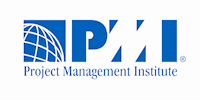Agile Complete Bundle
Includes 5 Agile courses + Scrum Master + all exams
Training Deals
Summary
- Exam(s) / assessment(s) is included in price
Add to basket or enquire
Overview
Fully understand Agile project and programme management with this 6-course online training bundle. It features 5 Agile courses and Scrum Master certification.
Courses included:
- Agile For Teams
- Agile Leadership
- AgilePM Foundation and Practitioner
- Agile PgM Foundation
- PMI Agile Certified Practitioner (PMI-ACP)®
- Scrum Master
Certifications
PMI Agile Certified Practitioner (PMI-ACP)
Agile Project Management (AgilePM®) Foundation Certificate
Agile Project Management (AgilePM®) Practitioner Certificate
Description
This bundle covers the following topics:
Agile For Teams
- Understanding the Agile Principles and Techniques
- What is Agile?
- The history of Agile
- Waterfall vs Agile
- Why choose Agile?
- Agile techniques
- Comparing Kanban and Scrum techniques
- Introducing Kanban
- The Kanban process
- Benefits of Kanban
- Introducing Scrum
- The Scrum Process
- Benefits of Scrum
- Kanban or Scrum?
- Creating Sprint Plans
- Sprint Planning Meeting
- Sprint Goals
- Sprint Review
- Sprint Retrospective
- Learning How to Manage Large and Small Teams Efficiently
- Leadership vs management
- Functions of leadership
- How to motivate
- Maximising verbal and visual communication
- Tips for managing large teams
- Challenges in managing large teams
- Challenges for managing small teams
- Tips for managing small teams
- Learning How to Plan Large-Scale Projects with Multiple Teams
- Planning large-scale projects
- Managing multiple teams
- Tips for managing multiple teams
- Implementing Agile concepts across multiple teams
- Organising the Product Backlog
- Defining the product backlog
- Revising the product backlog
- Evaluating a Project
- The evaluation phase
- Post-implementation review
Agile Leadership
- Embracing Uncertainty to Increase Business Value
- Adding Business Value to the Organisational Mission
- Agile Development Methodologies
- Identifying Business Value
- Lean Six Sigma
- Sharpening your Influencing skills
- The Agile Leadership Framework
- Exploiting Uncertainty
- The Agile Leader’s Toolkit
- Problem Solving
- Recognising Root Causes
- Emotional Intelligence for the Agile Leader
- Cultivating your Emotional Intelligence
- Appreciating diverse organisational cultures
- Creating an Agile Environment
- Empowering teams and fostering their success
- Implementing your Agile Leadership Action Plan
- Making decisions in a complex world
AgilePM Foundation and Practitioner
- Choosing the right approach
- The basics of Agile Project Management
- Roles and Responsibilities and delegation
- Preparing for an Agile project
- The factors that lead to success
- Agile lifecycles
- Processes and Products
- Communication in an Agile project
- Iterative development
- Prioritisation and Time boxing
- Maintaining control in an Agile project
- Anticipating and Managing risk
- Requirements and Estimating
- Agile Planning
- Building in quality Consolidate your previous Agile knowledge
- Successfully implement an Agile methodology into all aspects of your projects
- Communication in an Agile project
Agile PgM Foundation
- What is Agile?
- What is Agile PgM?
- Agile PgM Lifecycle and Products Overview
- Planning
- Roles and Responsibilities
- Stakeholder Engagement
- Governance
- Monitoring and Control (including Risk Management)
- Quality
- Summary and Close
PMI Agile Certified Practitioner (PMI-ACP)
- Agile Principles and Mindset
- Value Driven Delivery
- Stakeholder Engagement
- Team Performance
- Adaptive Planning
- Problem Detection and Resolution
- Continuous Improvement
Scrum Master
- Module 1: Introduction to Lean, Agile, and Scrum
- Module 2: Overview of Scrum
- Module 3: Scrum Artefacts
- Module 4: Sprints and the Scrum Framework
- Module 5: Roles and Responsibilities
- Module 6: The Scrum Master
- Module 7: Facilitation, Coaching, and Servant Leadership
- Module 8: Collaborate Decision Making
- Module 9: Scaling and Adaptation
Who is this course for?
This course is for project managers, programme managers and anybody else requiring extensive Agile knowledge.
Requirements
There are no prerequisites to study, though PMI-ACP certification requires prior experience.
Questions and answers
Reviews
Currently there are no reviews for this course. Be the first to leave a review.
Legal information
This course is advertised on reed.co.uk by the Course Provider, whose terms and conditions apply. Purchases are made directly from the Course Provider, and as such, content and materials are supplied by the Course Provider directly. Reed is acting as agent and not reseller in relation to this course. Reed's only responsibility is to facilitate your payment for the course. It is your responsibility to review and agree to the Course Provider's terms and conditions and satisfy yourself as to the suitability of the course you intend to purchase. Reed will not have any responsibility for the content of the course and/or associated materials.



